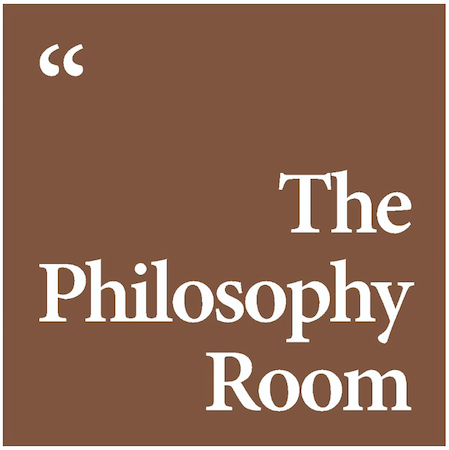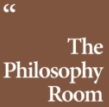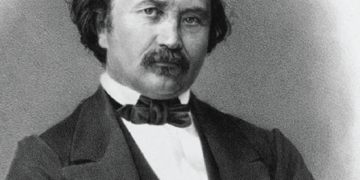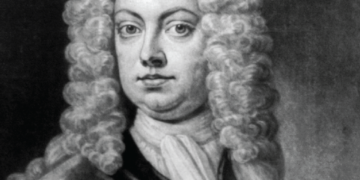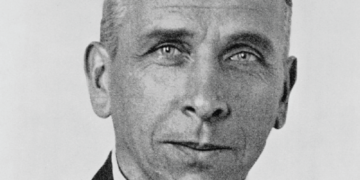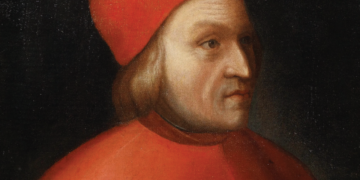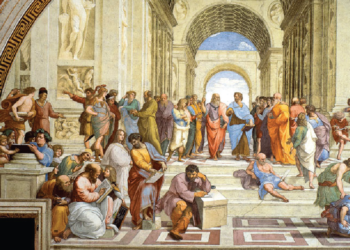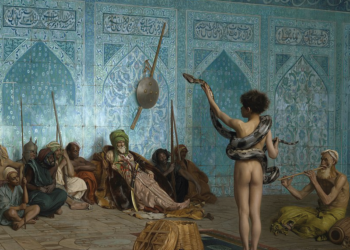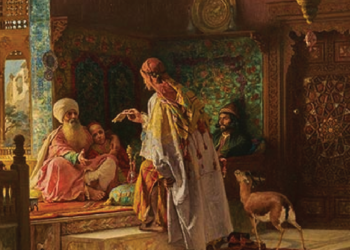Taha Hussein
1) His Biography:
Taha Hussein was a renowned Egyptian writer, educator, and literary critic. He was born on November 14, 1889, in the village of Izbet al-Kilo in Upper Egypt. Despite being born into a poor family, Hussein was able to receive an education and eventually became one of the most prominent figures in modern Egyptian literature.
Hussein lost his sight at a young age due to an illness, but this did not stop him from pursuing his education. He attended a school for the blind in Cairo and later enrolled at Cairo University, where he studied Arabic literature and graduated in 1914. After completing his studies, Hussein became a professor of Arabic literature at Cairo University, where he taught for many years.
Hussein’s literary career began in 1910 when he published his first book, a collection of poetry titled “The Whisperings of the Desert.” However, it was his literary criticism that gained him the most recognition. He wrote extensively on Arabic literature and was particularly interested in the works of the medieval poet Al-Mutanabbi and the modernist poet Ahmed Shawqi. His critical works include “The Future of Culture in Egypt,” “On Pre-Islamic Poetry,” and “On Al-Mutanabbi’s Poetry.”
In addition to his literary work, Hussein was also involved in politics and served in several government positions. He was a member of the Egyptian delegation that negotiated with the British government over Egypt’s independence in the 1920s. He later served as Minister of Education in the 1950s under President Gamal Abdel Nasser.
Despite his involvement in politics, Hussein continued to write and publish throughout his life. His most famous novel, “The Days,” was published in 1929 and tells the story of his childhood and education. The novel is considered a landmark in modern Arabic literature and is still widely read today.
Hussein received many awards and honors throughout his life, including the Order of Merit from the Egyptian government and the Legion of Honor from the French government. He was also nominated for the Nobel Prize in Literature several times. Taha Hussein passed away on October 28, 1973, at the age of 83. He left behind a rich legacy of literary and critical work, as well as a commitment to education and social justice that continues to inspire people today.
2) Main Works:
The Whisperings of the Desert (1910):
This was Taha Hussein’s first published work, a collection of poetry that he wrote while he was still a student at Cairo University. The poems in this collection deal with themes such as love, nature, and spirituality.
The Future of Culture in Egypt (1938):
In this work of literary criticism, Taha Hussein analyzes the state of Egyptian culture and argues that it needs to be modernized in order to keep pace with the rest of the world. He argues that Egypt needs to embrace scientific and cultural advancements in order to progress.
On Pre-Islamic Poetry (1943)
This work is a collection of essays in which Taha Hussein discusses the poetry that was written in Arabia before the advent of Islam. He examines the poetic forms and themes of this early poetry, and argues that it had a profound influence on the development of Islamic poetry.
The Days (1929):
This novel is Taha Hussein’s most famous work and is considered a landmark in modern Arabic literature. The novel is a semi-autobiographical account of Hussein’s childhood and education, and explores themes such as identity, education, and religion.
On Al-Mutanabbi’s Poetry (1944):
This is another work of literary criticism in which Taha Hussein analyzes the poetry of the medieval Arab poet Al-Mutanabbi. He explores the themes and techniques used in Al-Mutanabbi’s poetry, and argues that his work is still relevant and meaningful today.
The Stream of Days (1957):
This is a collection of essays and lectures that Taha Hussein gave over the course of his career. The essays cover a wide range of topics, including literature, culture, and politics.
The Philosophy of the Qur’an (1948):
In this work, Taha Hussein analyzes the philosophy of the Qur’an and argues that it contains a universal message that is applicable to people of all cultures and religions. He explores the themes of the Qur’an, such as justice, mercy, and compassion.
The Days of Our Life (1961):
This is another semi-autobiographical novel in which Taha Hussein explores the themes of education, identity, and religion. The novel is set in the early 20th century and follows the life of a young man as he navigates the challenges of modernity and tradition.
3) Main Themes:
Education:
Education is one of the most important themes in Taha Hussein’s writing. As someone who was blind from a young age and faced significant challenges in accessing education, he saw the power of education to transform lives and society. He believed that education was the key to progress and that it was essential for individuals to be educated in order to participate fully in society. This theme is particularly evident in his autobiography, “The Days,” which details his own journey to gaining an education.
Identity:
Taha Hussein was interested in exploring questions of identity, particularly what it meant to be an Egyptian in the modern era. He was critical of traditional Egyptian society and its values, and he believed that Egyptians needed to embrace modernity in order to move forward. At the same time, he was also deeply committed to preserving Egypt’s cultural heritage, and he was interested in finding ways to reconcile tradition and modernity.
Literature:
As a literary critic and writer, Taha Hussein was naturally interested in the themes and motifs of literature. He believed that literature had the power to inspire and transform individuals, and he saw it as a means of transmitting culture and values. He wrote extensively on Arabic literature, both ancient and modern, and he was particularly interested in the work of the medieval poet Al-Mutanabbi.
Social justice:
Taha Hussein was a committed advocate for social justice, particularly for the rights of the poor and marginalized. He believed that education and access to knowledge were essential tools for achieving social justice, and he worked to promote these values throughout his life. He was also an advocate for women’s rights and was deeply critical of the oppressive patriarchal structures that existed in Egyptian society.
Nationalism:
Taha Hussein was a strong advocate for Egyptian nationalism and believed that Egyptians needed to assert their identity and sovereignty in the face of colonialism and foreign domination. He held many government roles and was active in the Egyptian nationalist movement. He pushed for a more open and cosmopolitan nationalism that valued Egypt’s diversity and cultural legacy, but he was also critical of nationalist organisations he perceived as excessively narrow or restrictive.
4) Egyptian Renaissance and Taha:
The Egyptian Renaissance, or Nahda, was a period of intellectual and cultural revival that took place in Egypt in the late 19th and early 20th centuries. The Nahda was marked by a renewed interest in Egypt’s cultural heritage, a rejection of traditionalism, and a commitment to modernization and progress. Taha Hussein was one of the most prominent figures of the Nahda, and his work was instrumental in shaping the movement’s intellectual and cultural agenda.
The Nahda emerged in the wake of Egypt’s political and social upheavals in the 19th century. The country had been under Ottoman rule for centuries, but the Ottoman Empire was in decline, and European colonial powers were gaining influence in the region. Many Egyptian intellectuals saw the need for a cultural and intellectual renaissance that would enable Egypt to assert its identity and sovereignty in the face of foreign domination.
One of the key features of the Nahda was a renewed interest in Egypt’s cultural heritage. Taha Hussein was at the forefront of this movement, and his work as a literary critic and historian played a significant role in shaping the movement’s intellectual agenda. He believed that Egypt’s cultural heritage was rich and varied and that it was essential to preserve and promote it. At thesame time, he was critical of traditionalist attitudes that he saw as hindering Egypt’s progress and modernization.
Taha Hussein’s most famous work, “The Days,” is a memoir that details his own journey to gaining an education and becoming a writer. The book is also a reflection on the state of Egyptian society and culture in the early 20th century. In “The Days,” Hussein is critical of traditionalism and religious conservatism, which he saw as holding Egypt back. He advocated for a more progressive and open-minded approach that embraced modernity and scientific knowledge.
Hussein’s commitment to education was also a key feature of the Nahda. He saw education as a means of promoting social justice and enabling individuals to realize their full potential. Another important aspect of the Nahda was its commitment to social justice. Taha Hussein was a committed advocate for the rights of the poor and marginalized, and he believed that education and access to knowledge were essential tools for achieving social justice. He was a fierce opponent of the oppressive patriarchal institutions that prevailed in Egyptian society and a strong supporter of women’s rights.
5) His contribution to Egyptian national identity:
Taha Hussein’s contribution to Egyptian national identity was significant and far-reaching. He was a passionate advocate for Egyptian culture and history, and he played a key role in shaping Egypt’s national identity during the 20th century.
Hussein believed that Egypt’s cultural heritage was a source of national pride and identity, and he worked tirelessly to promote and preserve it. He was a prolific writer and literary critic, and his work helped to elevate Egyptian literature and culture to international prominence.
Hussein’s commitment to education was also a key factor in his contribution to Egyptian national identity. He worked to improve access to education for all Egyptians, and his efforts helped to create a more educated and informed populace, which was critical for the development of a strong and independent nation.
He was also a committed advocate for social justice and equality, and he believed that these were essential components of a strong national identity. He was critical of the patriarchal structures that existed in Egyptian society and worked to promote the rights of women and marginalized groups. His advocacy for social justice helped to create a more inclusive and equitable society, which was critical for the development of a strong and united nation.His advocacy for Egyptian nationalism helped to create a sense of national unity and pride, which was critical for the development of a strong and independent nation.
6) His Legacy:
One of Hussein’s most significant legacies is his role in promoting and preserving Egyptian culture and heritage. He was a passionate advocate for the importance of Egypt’s cultural heritage, and his work as a writer, historian, and literary critic helped to elevate Egyptian literature and culture to international prominence. His commitment to preserving Egypt’s cultural heritage continues to inspire cultural preservation efforts in Egypt today.
Hussein’s commitment to education and knowledge is a key aspect of his legacy. His attempts to increase access to education for all Egyptians contributed to the development of a more informed and educated citizenry since he believed that education was necessary for people to participate fully in society. His legacy continues to motivate initiatives to advance learning and knowledge in Egypt today.
Hussein’s advocacy for social justice and equality also left a lasting impact on Egyptian society. He was a committed advocate for the rights of women and marginalized groups, and his work helped to create a more inclusive and equitable society. His legacy continues to inspire social justice and equality movements in Egypt and beyond.
Finally, Hussein’s advocacy for Egyptian nationalism helped to shape the identity of Egypt during the 20th century and continues to inspire national pride and unity today. His commitment to asserting Egypt’s identity and sovereignty in the face of foreign domination helped to create a strong and independent nation.
In conclusion, Taha Hussein’s legacy is one of cultural preservation, education, social justice, and national pride. His contributions to Egyptian society and culture continue to inspire and shape the country today, and his influence extends far beyond Egypt’s borders. He remains an important figure in the history of Egypt and the broader Arab world, and his legacy is a testament to his enduring impact on the intellectual and cultural life of the region.
7) Some Quotes:
“A nation that does not advance in knowledge, cannot advance in any way.”– Taha Hussein“Education is not a luxury, but a necessity. It is not a tool for development, but a fundamental human right.”– Taha Hussein
“The more we know about our past, the more we can understand our present and shape our future.”– Taha Hussein
“Culture is the soul of a nation, and literature is the expression of that soul.”– Taha Hussein
“The most valuable treasure of a nation is its people, and the most valuable possession of its people is knowledge.”– Taha Hussein
